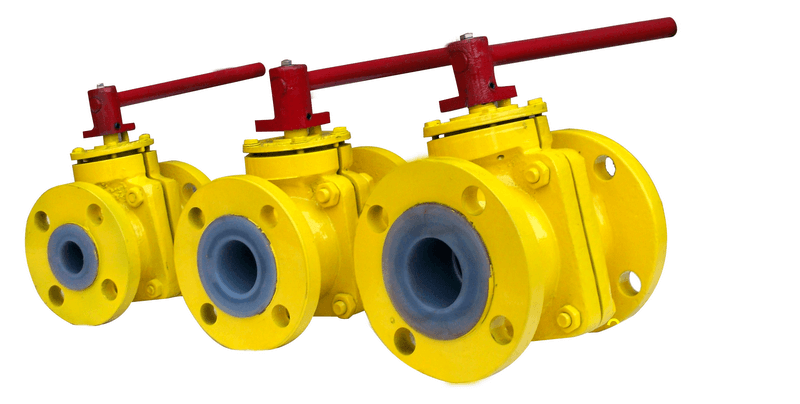
Be it Quarter Turn Valves or ROSOV, the designing and manufacturing of high-performance industrial valves is a complicated and intriguing process. The raw materials which the manufacturers choose to make these valves play a very crucial role in determining the overall quality of the final product. What’s more, the tools and equipment used to process the raw materials are also of immense significance when it comes to the shape, size, geometry, angle, and accuracy of the industrial valves.
If we want to understand the process of industrial valve manufacturing, then we have to familiarize ourselves with the steps that are involved in this process. The process involves the following:
-
Dissolving the metal
-
Cutting and shaping the material
-
Casting and cleaning up, and
-
Machine processing.
Finally, the end product goes for comprehensive quality testing along with tolerance, pressure, and temperature. The production of valves can be further divided into different components such as actuation devices and manufacturing components. Debarring of the valve body is all that the manufacturing process begins with. Next, the design engineers involved create the threads while aiming at attaching the parts of the valves to the components or the pipe. Finally, the valve is tested for functional parameters and offered for sale in the open market.
Some of the crucial stages of valve manufacturing
Order and Design
All begins with the order that a customer places and accordingly the design engineers start working on the project. Once the design of a valve is created, it is sent to the client for approval. After the prototype is approved, the order is placed and the work starts for the required amount of products or valves. All the required materials are sourced according to the nature of the application or the environment in which the valves are to be installed. Different industries call for different valve requirements, and therefore the manufacturer takes the call accordingly.
Inventory
Choosing the right kind of materials is one of the most crucial phases in the process of industrial valve manufacturing. It is so because the valves that find applications in the power sectors cannot be used in marine applications. And therefore as per the gravity of the industry-specific requirements, the raw materials are chosen. Since a valve involves so many parts, not a single material can fit all production needs. Different materials are required because the manufacturer has to make different parts or components of the valve. Therefore, the design engineers move to the inventory and look for the required materials. In case the required material is not readily available, then they have to procure it from the best suppliers.
Completing the Checklist
When all the materials are in place, all the members of the manufacturing team need to create a checklist to make sure that all the materials are ready to begin the manufacturing process. As said earlier also, an industrial valve has so many components and parts and therefore its manufacturing needs many different materials. Apart from it, a comprehensive quality check is conducted on all the raw materials in place by the quality team before the materials go to the shop floor for production. This is a standard procedure followed by all the reputed valve manufacturers in India and abroad.
Production Process
When it comes to the production process involved in the manufacturing of industrial valves, it includes the making of the valve bodies, stems and seats. Casting is the most preferred method to make these components of the valve. However, over the years, some drastic changes have taken place in the production process, and some reputed manufacturers in India and the world have also started making use of the forging method to make the components of the valves. The forging method includes the following steps:
Cutting and forging
Trimming
Sandblasting
Machining, and
Surface treatment.
When it comes to producing valve components with extremely complex inner cavities, the contemporary casting processes make use of a core to carry out the task. The valve bodies are often made using a single piece or cast by making use of cores or moulds.
Assembly
Assembling is the most important procedure in the process of manufacturing valves. When all the parts or components of the valve are ready, the manufacturing team must follow all the standard procedures for assembling. Almost all the major parts of the valves are deep-cleaned and assembled separately. After the production process gets completed, all parts are assembled as per the procedure to create a completely new valve as desired by the customers. The assembling process is generally accomplished by making use of the valve body as a reference part.
Pressure Test
Now comes the turn of pressure test in which all the valves need to undergo a pressure test. The hydrostatic pressure test is considered to be the most basic pressure test for valves. The said test is all about partially opening the valve is putting it under hydrostatic pressure which is around 50% higher in comparison to its rated working pressure. During the test, it is ensured that the sealing surface of the valve is leak-proof and the applied pressure does not come down against its rated working pressure.
Inspection and Quality Control
Inspection and quality controls are the last but not the least important steps in the value manufacturing process. All the valves are inspected and checked very minutely for all types of flaws and shortcomings including leakage or error. Industrial valve manufacturers and suppliers take inspection and quality control calls very seriously.
Concluding Remarks
Advance Valves is one of India’s largest professionally-managed industrial valve manufacturing companies. The company holds a boastful position amongst the Top 3 'Make in India' Valve Manufacturers as per the latest. The company makes use of advanced technology and efficient processes to achieve the highest standards of quality & delivery. The company has also focused on innovation and therefore the products made by the company always shine in the national and global markets.